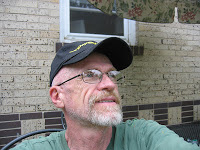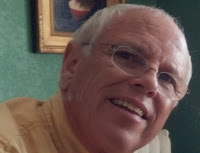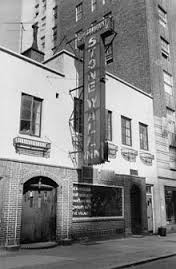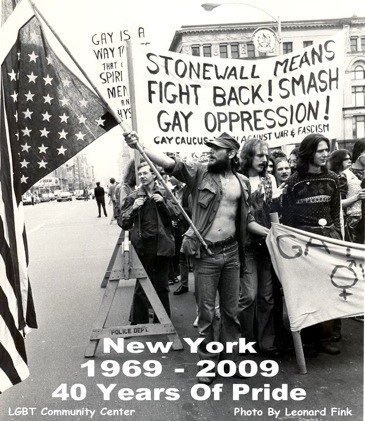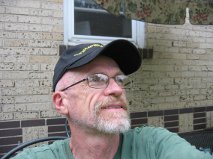As with many quotes, I begin my pieces with this one is tangential. In fact, it is so tangential that I may not be able to twist it around to the topic but I liked it so much after reading it in a recent New York Times (NYT) interview with her I had to use it.
I suppose one could easily make “running away” a metaphor for staying in the closet and this may have been the case for me personally way back when. Perhaps a physical running away was what my moving to Denver in 1972 with a straight woman and three other closeted gay men was really all about. None of us on this sojourn to the Queen City of the Plains were “out” to any of the others but suspicions were running high. Give us a bit of a break though since the powerful ripples created by Stonewall had yet to make it in any big way to the middle part of America we were fleeing from.
Though I pretty much was over any running away from being queer by the mid-1970’s I have still managed to do my fair share of running away in other areas of my life. I could have for example jumped-in head first to Radical Fairie politics and I think probably have actually moved in with Harry Hay and John Burnside or at least hitched my wagon to that trip in a much more intense way than I did. Harry ever so subtly over the years was always encouraging me to do more implying that I was not living up to my queer potential.
Running away though may have its advantages at times. For me in 1980 falling in love with the man who would be my loving companion until his death in 1995 had many advantages. This choice of staying in Denver rather than picking up and moving to L.A. to be near and much more involved with Hay and the Radical Fairies worked out well. And let’s face it I think I made a much better nurse than I would have made a full-time Queer Activist even one in the orbit of the mercurial and prophetic Harry Hay.
I could go on about other areas where I have turned tail and headed for the hills but enough about me. The newspaper the Wichita Eagle first reported this past week the death in Wichita Kansas of Adrian Lamo at the age of 37. Yes, I will be quoting from the Wichita Eagle which will probably never happen again though remember the Koch Brothers are also from Wichita, with Koch Industries based there, so never say never.
Lamo was a very adept hacker. Most notably he hacked into the NYT and Microsoft among others in the early 2000’s and was convicted of computer fraud in 2004.
His greatest notoriety though came from turning Chelsea Manning into the Feds in 2010. Manning had shared with him that she had turned over to Wikileaks a large trove of classified documents pertaining to the U.S. involvement in Iraq and Afghanistan including clear evidence of American war crimes.
Manning had reached out to Lamo as someone she thought she could trust admiring, I suppose, his brazen hacks into very powerful organizations. And perhaps and I am speculating here she felt she could trust someone with clear ties to the LGBTQ community. The San Francisco Board of Supervisors had in 1998 appointed Lamo to the City’s LGBTQQ Youth task forcefile://localhost/. https/::www.wired.com:story:adrian-lamo-has-passed-away-at-37:
Lamo testified against Manning at her trial in 2013 and she was subsequently sentenced to 35 years in federal prison. This was the harshest sentence ever for a whistleblower. Barack Obama though commuted her sentence in 2016. A full pardon with honors and recognition as a true patriot would have been more appropriate but we’ll take the reduced sentence.
Quoting a friend of Lamo’s, one Lorraine Murphy, from the Wichita Eagle piece of March 16th, 2018 she described him “as someone who bounced around a great deal… He was a believer in the geographic cure. Whatever goes wrong in your life, moving will make it better.” http://www.kansas.com/news/local/article205629184.html
The “geographic cure” is something synonymous I would say with “running away” and engaged in I suspect in a disproportionate manner historically by queer folk everywhere.
Lamo was quite open apparently about queer aspects of his life but he seems to have been a poor soul often running away from something. I certainly do not know enough about the man to speculate what sort of ghosts were chasing him. Unfortunately, he is now dead and Chelsea Manning is alive and thriving and running for elected office in Virginia. Maybe the better part of valor is to face things head-on and not pick up and run away.
And though she may think she is no longer making history Joan Baez has never as far as I can tell ever run away from anything and neither did Chelsea Manning. Both women are heroines I can try to emulate in my own life and invoke when the temptation to run away presents itself, as it certainly will again.
© March 2018
About the Author
I was born in La Porte, Indiana in 1949, raised on a farm and schooled by Holy Cross nuns. The bulk of my adult life, some 40 plus years, was spent in Denver, Colorado as a nurse, gardener and gay/AIDS activist. I have currently returned to Denver after an extended sabbatical in San Francisco, California.
